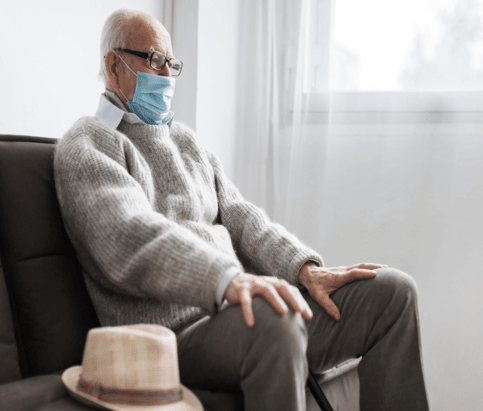Mental health in adulthood can be affected by various factors, and aging introduces its own set of challenges and changes that can impact mental well-being. As people age, they may experience certain life changes that impact their mental health, such as coping with a serious illness or losing a loved one . Although many people will adjust to these life changes, some may experience feelings of grief, social isolation, or loneliness. There may be multiple risk factors for mental health problems at any point in life. Older people may experience life stressors common to all people, but also stressors that are more common in later life, like a significant ongoing loss in capacities and a decline in functional ability. Many older adults are at risk for mental health problems. But this does not mean that mental health problems are a normal part of aging. It's important to recognize and treat mental disorders in older adults. These disorders don't just cause mental suffering. They can also make it harder for our senior loved one to manage other health problems. This is especially true if those health problems are chronic. It's important to note that while aging can present challenges to mental health, many older adults maintain good mental well-being and adapt well to the changes they face. Additionally, seeking support from family, friends, healthcare professionals, and mental health services can help address and manage mental health concerns effectively. Promoting mental well-being in older adulthood involves staying socially engaged, engaging in regular physical activity, maintaining a balanced diet, seeking regular medical check-ups, staying mentally stimulated, and accessing appropriate mental health support when needed.
Causes of Recurrent Falls in the Elderly and Prevention Techniques
Recurrent falls in the elderly can be caused by a combination of factors, including: Age- Related Changes,Muscle Weakness. Impaired Vision, Medications, Chronic Health Conditions, Environmental Hazards,Foot Problems,Balance Disorders. Cardiovascular Issues,Cognitive Impairment Fall is Defined as Any unintentional (witnessed or unwitnessed) change in position where the resident ends up on the floor, ground, or other lower level. When it comes to recurrent falls in the elderly, prevention is key, as fall incidents can result in serious injuries, loss of independence, and a decrease in overall quality of life.
Prevention Techniques for Recurrent Falls:
Preventing recurrent falls in the elderly involves a multi-faceted approach addressing various risk factors. Here are some prevention techniques:
1. Regular Exercise: Engaging in exercises that improve strength, balance, and flexibility can enhance mobility and reduce the risk of falls. Tai Chi and balance training programs are particularly beneficial.
2. Medication Review: Regularly review medications with a healthcare professional to identify any drugs that may increase fall risk or interact adversely with other medications.
3. Vision Checks: Regular eye exams can identify visual impairments that need correction and reduce the risk of falls.
4. Home Safety Assessment: Conduct a home safety assessment to identify and address potential hazards, such as loose rugs, poor lighting, or clutter.
5. Proper Footwear: Wear well-fitting, supportive footwear with non-slip soles to improve stability.
6. Assistive Devices: Use assistive devices like canes or walkers, if recommended by a healthcare professional, to aid balance and prevent falls.
7. Environmental Modifications: Install handrails, grab bars, and non-slip mats in bathrooms and other areas prone to slips and falls.
8. Fall Detection Alarms: Consider using fall detection alarms or wearable devices that can alert caregivers or emergency services in case of a fall.
9. Stay Hydrated: Dehydration can contribute to dizziness, so encourage regular intake of fluids.
10. Regular Health Check-ups: Schedule regular check-ups to monitor chronic health conditions and address any new health concerns that may increase fall risk.
11. Home Exercise Program: Encourage the elderly to follow a home exercise program prescribed by a physiotherapist to maintain strength and balance.
12. Stay Mindful of Environmental Hazards: Be aware of potential hazards in different environments outside the home, such as uneven surfaces or poor lighting in public places.
By addressing these factors and implementing appropriate prevention techniques, the risk of recurrent falls in the elderly can be significantly reduced, allowing them to maintain independence and overall well-being.

